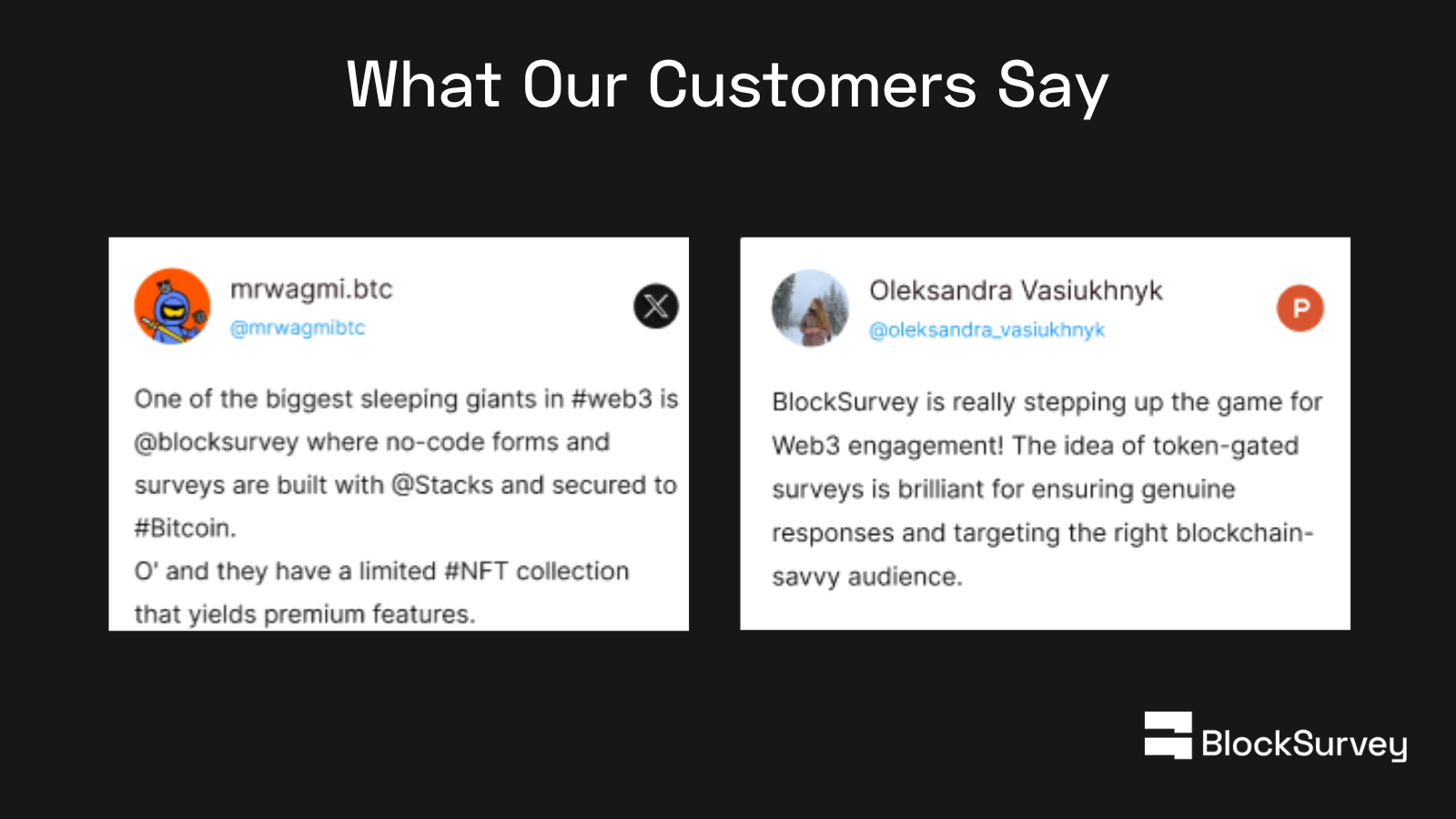Get insights.
Unlock value.
- 14-day free trial
- Set up in minutes
- No credit card required
10 Most Reliable Web3 Development Tools and Platforms in 2025
Feeling like playing a puzzle with missing pieces? Building in Web3 still feels like playing on hard mode.
You’ve got the vision, the team, maybe even some early users... but the tech stack? That’s where things get messy. If you're a developer, startup founder, or product lead venturing into the decentralized world, you may already have some frustrating roadblocks. Maybe your dApp keeps breaking when traffic spikes. Or the dev tools you're using are outdated, unsupported, or just clunky.
You and your team are spending more time wrestling with infrastructure than building your own product.
Why Building in Web3 Still Feels Like a Maze
Web3 promised to break us free from gatekeepers. But what it didn’t tell us was how chaotic the actual building experience would be.
You jump in with big ideas and momentum… and then suddenly you're knee-deep in issues you didn’t sign up for:
- Gas fees are all over the place
- Dev tools that feel like they’re stuck in 2020
- No clean way to go cross-chain
- Storage headaches you didn’t expect
- And scaling? Forget it - things start breaking before you even hit traction
If you're working with a small team or tight timeline, these aren’t just speed bumps - they’re deal-breakers. You can’t afford to waste weeks battling infrastructure or debugging stuff that should just work. Every tool in your tech stack has to work clearly, including how you collect feedback. BlockSurvey lets you run secure, privacy-first surveys to support your product development.
What you really need is a stack that’s stable, scalable, and actually maintained. The kind of tools that let you build and ship
Web3 Dev Platforms to Know in 2025
Luckily, there’s good news: the Web3 ecosystem has matured a lot in the past couple of years. Today, there are platforms and services that actually deliver on the promise of decentralized development.
Here are 10 of the most reliable Web3 platforms you can count on in 2025:
Platform | Pros | Cons |
Ethereum | - Most mature ecosystem- High security- Large dev community | - High gas fees (mitigated by L2s)- Slower throughput |
Solana | - Extremely fast (65,000+ TPS)- Low fees- Active NFT/gaming | - Occasional network outages- Less decentralization |
Polkadot | - Interoperability- Modular architecture- Multi-chain support | - Complex architecture- Smaller ecosystem than Ethereum |
BNB Chain | - Low fees- Fast confirmation- EVM compatible | - Less decentralized- Centralized control (Binance ties) |
Polygon | - EVM compatible- Low fees- Ethereum integration | - Still relies on Ethereum- Not as decentralized as Ethereum |
Filecoin | - Decentralized storage- Incentivized integrity | - Not for smart contracts- Slower compared to standard storage |
1. Ethereum
Still the king of smart contracts and dApps for good reason. Ethereum’s high decentralization and security make it a go-to for serious Web3 projects. Yes, gas fees can spike, but thanks to rollups and layer 2s, it's far more manageable now.
Why use it?
- Most mature ecosystem
- Massive developer community
- Security-first foundation
2. Solana
If you need speed, Solana delivers, with up to 65,000 transactions per second and near-zero fees. It’s perfect for projects that need serious scalability, like games or DeFi platforms with lots of transactions.
Why use it?
- Blazing-fast throughput
- Cost-effective transactions
- Growing NFT and gaming ecosystem
3. Polkadot
Need interoperability between chains? Polkadot has your back. It’s built for cross-chain communication, letting your dApp play nice with other blockchains - something Ethereum struggles with natively.
Why use it?
- Multi-chain compatibility
- Modular architecture
- Strong developer ecosystem
4. Binance Smart Chain (BNB Chain)
Fast. Cheap. Familiar. BSC is EVM-compatible and offers an ideal setup for launching DeFi protocols, NFT marketplaces, or any project that values speed without Ethereum's cost.
Why use it?
- Low gas fees
- Fast confirmation times
- Huge user base
5. Polygon
Think of Polygon as Ethereum’s supercharger. It’s a layer 2 solution that provides low fees and high speed - without sacrificing Ethereum compatibility.
Why use it?
- EVM-compatible
- Great for dApps scaling from Ethereum
- Solid community and ecosystem tools
6. Filecoin
Web3 isn’t just about smart contracts - you need to store stuff too. Filecoin offers decentralized, reliable data storage. Whether you’re saving NFTs, documents, or full app data, this is your go-to.
Why use it?
- Decentralized file storage
- Scalable and secure
- Incentivized uptime and integrity
7. QuickNode
Don’t want to manage your own infrastructure? QuickNode handles node hosting across multiple chains. It's fast, reliable, and helps you focus on shipping instead of DevOps.
Why use it?
- Multi-chain support
- Ultra-low latency
- Great for production-ready scaling
8. Infura
If you’ve ever built on Ethereum, you’ve probably used Infura - even if you didn’t know it. It’s the backbone of many dApps, offering API access to Ethereum and IPFS with solid uptime and scaling.
Why use it?
- Plug-and-play infrastructure
- Reliable and developer-friendly
- Used by MetaMask, OpenSea & others
9. Alchemy
Need advanced analytics, debugging, and monitoring tools on top of your node provider? Alchemy delivers that and more. It’s a full-stack Web3 dev suite that helps you go from idea to mainnet fast.
Why use it?
- Powerful APIs
- Enhanced debugging tools
- Great for scaling teams and apps
10. Foundry & Hardhat
These are essential tools for actually writing, testing, and deploying your smart contracts. Foundry is blazingly fast and Rust-based, while Hardhat remains the most beginner-friendly with solid plugin support.
Why use it?
- Reliable testing frameworks
- Widely adopted
- Supports EVM-compatible chains

Choose Smarter
Web3 has come a long way and more to go, you have to choose the right tech stack. With the platforms above, you can finally build products that scale, perform, and don’t fall apart under pressure.
But it’s not just about smart contracts and infrastructure. If you're collecting user feedback, onboarding insights, or building community governance, your survey tool needs to match the rest of your stack: private, secure, and decentralized. Sign up now!
It’s a privacy-first, Web3-friendly survey tool that respects your users' data and helps you collect feedback without compromising security. Whether you're doing DAO governance polls, dApp onboarding surveys, or just need lightweight forms baked into your workflow, BlockSurvey integrates seamlessly. Book a demo to know more.
10 Most Reliable Web3 Development Tools and Platforms in 2025 FAQ
What are the best Web3 development tools in 2025?
Some of the top Web3 tools in 2025 include Ethereum for smart contracts, Solana for speed, Filecoin for decentralized storage, QuickNode for node hosting, and BlockSurvey for secure, privacy-first user feedback collection.
How do I choose the right Web3 tech stack for my project?
Start by identifying your priorities: speed, cost, interoperability, storage, or privacy. Use chains like Solana for high throughput, Polygon for scaling Ethereum apps, and BlockSurvey for collecting secure feedback or running governance polls.
Why is building in Web3 still so difficult?
Many developers face outdated dev tools, unpredictable gas fees, limited cross-chain compatibility, and scaling challenges. Choosing modern, well-maintained platforms can reduce these hurdles significantly.
How does BlockSurvey support Web3 development teams?
BlockSurvey helps teams collect user feedback, run DAO polls, and gather insights securely without compromising privacy. It's a Web3-native tool with encryption, no data tracking, and seamless integration into dApp workflows.
Get insights.
Unlock value.
- 14-day free trial
- Set up in minutes
- No credit card required




